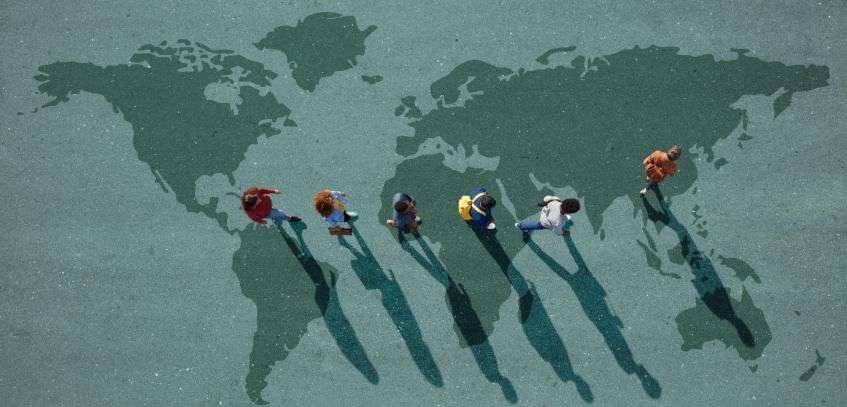Migration has traditionally been one of the key policy areas in which ECOSOCC has been particularly active, given the centrality of migration to the integration agenda of the African Union. In 2021 ECOSOCC explored the role of civil society in the implementation of the Migration Policy Framework for Africa (MPFA), through a webinar series and a policy booklet https://ecosocc.au.int/doc-viewer/172.
As a continuation of this work, developed in partnership with Germany/ Deutsche Gesellschaft fuer Internationale Zusammenarbeit, GmbH (GIZ), ECOSOCC convened a Regional Civil Society Organization (CSO) Sensitization Forum, from 17-19 May 2022 in Accra, Ghana on the African Union Continental Free Movement Protocol (FMP).
The forum popularized the FMP and MPFA, and particularly improved the understanding of African CSOs of the FMP and provided them with tools to perform advocacy for implementation of the Protocol by member states.
The FMP and the MPFA have been established by the AU as the primary policy frameworks to address, manage, and promote migration and mobility on the continent.
The FMP, in particular, aims to curb and eventually eliminate barriers to regional border migration (to work, visit, trade, live, etc.) within the continent. Eliminating these barriers translates to economic growth on the continent as well as improved migration procedures for African citizens.
Unfortunately, despite the existence of these migration policy frameworks, policy uptake among AU Member States and their popularization within African civil society remains low and has not achieved the desired impact. The Forum deliberated on institutional, legal, and policy obstacles, as well as opportunities, for the free movement of people in the ECOWAS and ECCAS regions.
The Forum observed that key obstacles, challenges and opportunities mainly relate to the linkages of free movement of people to governance, security, social and economic development; and in particular, intra-regional trade, climate justice, food security, medical sovereignty, and the creation of enabling environments for effective citizen participation and engagement.
The opening ceremony was presided by Honourable Kwaku Ampratwum-Sarpong, Deputy Minister for Foreign Affairs and Regional Integration of the Republic of Ghana; Mr Denise Kodhe, ECOSOCC Presiding Officer; Ms. Dorothee Dinkelaker, Head of Cooperation, German Embassy Ghana; Mr Albert Siaw-Boateng, Director in charge of the Free Movement, ECOWAS Commission and Mr William Carew, Head of ECOSOCC Secretariat. Also in attendance during the forum was Ghana’s Ambassador to Ethiopia and Permanent Representative to AU and UNECA, Mrs. Amma Twum-Amoah.
The forum's deliberations were consolidated into a plan of action focusing on advocacy, promotion, ratification, domestication and implementation of the AU's FMP, and particularly in addressing areas where civil society's capacity and engagement required strengthening.
The forum concluded with a Civil Society communique for onward transmission to the Member States.


